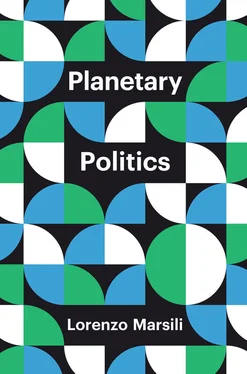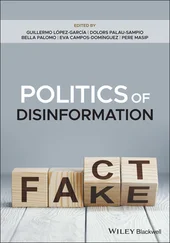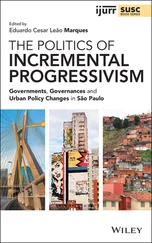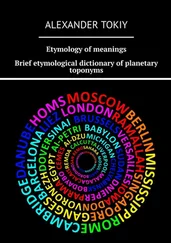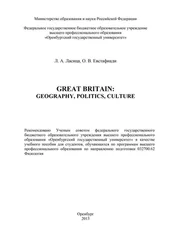97 94
98 95
99 96
100 97
101 98
102 99
103 100
104 101
105 102
106 103
107 104
108 105
109 106
110 107
111 108
112 109
113 110
114 111
115 112
116 113
117 114
118 115
119 116
120 117
121 118
122 119
123 120
124 121
125 122
126 123
127 124
128 125
129 126
130 127
131 128
132 129
133 130
134 131
135 132
136 137
Theory Redux series
Series editor: Laurent de Sutter
Mark Alizart, Cryptocommunism
Armen Avanessian, Future Metaphysics
Franco Berardi, The Second Coming
Alfie Bown, The Playstation Dreamworld
Laurent de Sutter, Narcocapitalism
Roberto Esposito, Persons and Things
Graham Harman, Immaterialism
Helen Hester, Xenofeminism
Srećko Horvat, The Radicality of Love
Lorenzo Marsili, Planetary Politics
Dominic Pettman, Infinite Distraction
Eloy Fernández Porta, Nomography
Nick Srnicek, Platform Capitalism
Planetary Politics
A Manifesto
Lorenzo Marsili
polity
Copyright © Lorenzo Marsili 2021
The right of Lorenzo Marsili to be identified as Author of this Work has been asserted in accordance with the UK Copyright, Designs and Patents Act 1988.
First published in 2021 by Polity Press
Polity Press
65 Bridge Street
Cambridge CB2 1UR, UK
Polity Press
101 Station Landing
Suite 300
Medford, MA 02155, USA
All rights reserved. Except for the quotation of short passages for the purpose of criticism and review, no part of this publication may be reproduced, stored in a retrieval system or transmitted, in any form or by any means, electronic, mechanical, photocopying, recording or otherwise, without the prior permission of the publisher.
ISBN-13: 978-1-5095-4478-3
A catalogue record for this book is available from the British Library.
Library of Congress Cataloging-in-Publication Data
Names: Marsili, Lorenzo, author.
Title: Planetary politics : a manifesto / Lorenzo Marsili.
Other titles: Tua patria è il mondo intero. English
Description: Cambridge, UK ; Medford, MA : Polity Press, 2021. | Series: Theory redux | Includes bibliographical references. | Summary: “A manifesto for a new planetary vision that can address the great challenges of our time”-- Provided by publisher.
Identifiers: LCCN 2020026068 (print) | LCCN 2020026069 (ebook) | ISBN 9781509544769 (hardback) | ISBN 9781509544776 (paperback) | ISBN 9781509544783 (epub)
Subjects: LCSH: Political science. | World politics--20th century. | World politics--21st century.
Classification: LCC JA71 .M124513 2021 (print) | LCC JA71 (ebook) | DDC 320--dc23
LC record available at https://lccn.loc.gov/2020026068LC ebook record available at https://lccn.loc.gov/2020026069
The publisher has used its best endeavours to ensure that the URLs for external websites referred to in this book are correct and active at the time of going to press. However, the publisher has no responsibility for the websites and can make no guarantee that a site will remain live or that the content is or will remain appropriate.
Every effort has been made to trace all copyright holders, but if any have been overlooked the publisher will be pleased to include any necessary credits in any subsequent reprint or edition.
For further information on Polity, visit our website: politybooks.com
In 1972 Henry Kissinger met Zhou Enlai in what would become the first step towards the great reconciliation between the United States and China.
‘How do you judge the French Revolution?’ the American Secretary of State asked. ‘It is still too early to tell’, replied the Chinese premier. The scene has become a classic illustration of the Chinese inclination for the long term, despite probably originating in a misunderstanding in translation: Kissinger actually referred to the revolution of 1789, while Zhou Enlai thought of the French uprisings of 1968. Nevertheless, the exchange still gets it right. It is only today that the parable inaugurated by the French Revolution, with the entry of the nation as the leading historical actor and unique reference point for citizenship and political agency, finally comes to a close.
The Constituent Assembly elected during the French Revolution of 1789 drafted the ‘Declaration of the Rights of Man and of the Citizen’. The title itself expresses the constitutive uncertainty of modern citizenship between the universal and the particular. In the Declaration we do not find a set of rights for all human beings and a set of rights reserved for citizens, but rather only those universal principles that unite the entire humanity. The universal aspect however goes hand-in-hand with the enshrining of particular rights in national law, which stands as their guarantee. The nation is both the guarantor of rights and the space for collective action by citizens to defend them. The nation, with its general will, is the instrument capable of establishing the universal in the particular and making the particular part of the universal.
We all know how much pain and destruction has emerged from such aspirations. The exclusionary character of the nation emerged immediately after the French Revolution, with the first great revolt in the French Caribbean led by the freed slave and black Jacobin Toussaint Louverture. Quoting the Declaration and singing the Marseillaise, Louverture found himself fighting that very same Republican army committed to extending across Europe new revolutionary principles that were apparently universal but actually denied to colonial peoples. We know the history of nations and we remember how often they turn against their own people in genocidal and persecutory acts. We know how arbitrary, and cruel, is often the choice of who really belongs to the nation.
But national aspirations fail today in another and deeper sense. The nation is no longer capable, even in its most ideal perspective, of guaranteeing human rights and the free exercise of popular sovereignty. Citizens’ rights are no longer superimposed on, they are no longer the particular of, universal rights, but only a part or a subset of them. The nation, provincialised and marginalised, no longer guarantees full exercise of political, social and civic agency in a human society that has now trampled every border.
Many would like to convince us that the recovery of control and sovereignty passes by an abandonment of the world and an entrenchment behind the material and mental borders of closed territories and indomitable, great-again nations. But this idea has never been as false as it is today. If we do not want our political agency and our powers of the imagination to become a mere footnote in a tragic history of impotence, we must rather recover the planet and recuperate the belief in our power of transforming it.
In the pages that follow we will briefly run through the short history of the becoming world of the world , leading up to our contemporary sense of loss and disorientation. We will then offer some cursory notes for a possible planetary politics to liberate our world and our common humanity.
1 The twilight of universal Europe
The Avenida Central of Rio de Janeiro was built in 1904, following the latest European fashion: stone façades, domes and belle époque iron railings adorned a triumph of modernity. Photographers have left ample documentation of the elegant European architecture and of the people who frequented the street. Women are seen wearing outsized skirts and carrying black umbrellas, while men dress in dark tuxedos and top hats. We are at the equator: the temperature skyrockets and humidity causes the skin to sweat. These are not the right clothes to wear. But all climatic considerations are secondary, because il faut être absolument moderne . And being modern means disregarding distances, weather, and local customs, and thinking and acting as if we had all just left a café-concert on a Parisian boulevard.
Читать дальше
